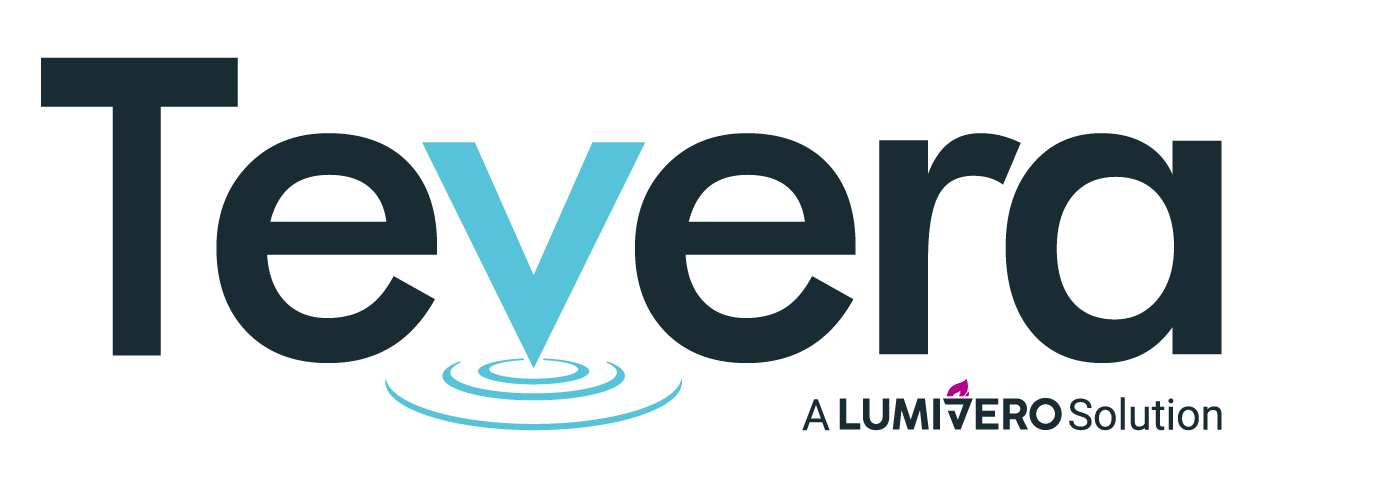Enhancing Accreditation Reporting Through Effective Assessment Management
A high-quality education is the hallmark of an accredited institution. The ongoing task of maintaining that accreditation is a process that relies heavily on comprehensive and accurate assessment management. Today, we will explore how accreditation reporting can be improved through refined assessment management practices.
The Intersection of Assessment Management and Accreditation
Accreditation bodies mandate educational institutions to consistently demonstrate their adherence to established performance standards. The primary evidence of such compliance is provided through assessment data, which encapsulates the institution’s effectiveness and student achievements (Banta & Palomba, 2015). Efficient and accurate assessment management, therefore, becomes vital in not only securing but also maintaining an institution’s accredited status.
The Importance of Assessment Practices
Educational institutions must follow established best practices to ensure reliable data collection, effective data interpretation, and meaningful use of this data in improving teaching and learning processes (Fulcher, Good, Coleman, & Smith, 2017).
Implementing Better Assessment Management Strategies
Several strategies can be employed to bolster the efficiency and effectiveness of assessment management practices. These include:
Establish Clear Learning Outcomes
Clearly articulated learning outcomes provide the foundation for robust assessment strategies (Suskie, 2018). They serve as the measure of students’ learning, helping in the accurate evaluation of an institution’s educational effectiveness.
Ensure Consistent Data Collection and Analysis
Consistency in data collection and analysis is crucial to ensure the reliability and validity of the assessment data. This becomes especially important when the data is utilized in the preparation of accreditation reports.
Promote Collaboration and Training
Fostering a culture of collaboration among faculty and providing ample training on assessment management can encourage a unified approach to data collection, analysis, and reporting (Jankowski, 2020).
Conclusion
Improving accreditation reporting is a gradual process that calls for an enduring commitment, effective assessment management practices, and a thorough understanding of assessment data. The rewards, ranging from sustaining accreditation to driving institutional improvement, make this pursuit valuable and essential.
Do You Have the Right Assessment Management Tools in Place?
Tevera enables programs to establish learning outcomes as program standards, the foundation of a sound assessment process. Through the alignment of these standards to assessment criteria, you can ensure consistent, program-wide data collection that informs both granular and holistic insights into student and program success.
Learn more about Tevera’s approach to assessment management.
Additional Information on Assessment Management
- Banta, T. W., & Palomba, C. A. (2015). Assessment essentials: Planning, implementing, and improving assessment in higher education (2nd ed.). Jossey-Bass.
- Fulcher, K. H., Good, M. R., Coleman, C. M., & Smith, K. L. (2017). A simple model for learning improvement: Weigh pig, feed pig, weigh pig. Assessment Update, 29(6), 1-16.
- Jankowski, N. A. (2020). Mapping learning outcomes: What you see is what you get. Research & Practice in Assessment, 14, 5-14.
- Suskie, L. (2018). Assessing student learning: A common sense guide (3rd ed.). Jossey-Bass.
SOLUTIONS
RELATED POSTS
PRODUCT OVERVIEW
See how Tevera can elevate your program.
Enhancing Accreditation Reporting Through Effective Assessment Management
A high-quality education is the hallmark of an accredited institution. The ongoing task of maintaining that accreditation is a process that relies heavily on comprehensive and accurate assessment management. Today, we will explore how accreditation reporting can be improved through refined assessment management practices.
The Intersection of Assessment Management and Accreditation
Accreditation bodies mandate educational institutions to consistently demonstrate their adherence to established performance standards. The primary evidence of such compliance is provided through assessment data, which encapsulates the institution’s effectiveness and student achievements (Banta & Palomba, 2015). Efficient and accurate assessment management, therefore, becomes vital in not only securing but also maintaining an institution’s accredited status.
The Importance of Assessment Practices
Educational institutions must follow established best practices to ensure reliable data collection, effective data interpretation, and meaningful use of this data in improving teaching and learning processes (Fulcher, Good, Coleman, & Smith, 2017).
Implementing Better Assessment Management Strategies
Several strategies can be employed to bolster the efficiency and effectiveness of assessment management practices. These include:
Establish Clear Learning Outcomes
Clearly articulated learning outcomes provide the foundation for robust assessment strategies (Suskie, 2018). They serve as the measure of students’ learning, helping in the accurate evaluation of an institution’s educational effectiveness.
Ensure Consistent Data Collection and Analysis
Consistency in data collection and analysis is crucial to ensure the reliability and validity of the assessment data. This becomes especially important when the data is utilized in the preparation of accreditation reports.
Promote Collaboration and Training
Fostering a culture of collaboration among faculty and providing ample training on assessment management can encourage a unified approach to data collection, analysis, and reporting (Jankowski, 2020).
Conclusion
Improving accreditation reporting is a gradual process that calls for an enduring commitment, effective assessment management practices, and a thorough understanding of assessment data. The rewards, ranging from sustaining accreditation to driving institutional improvement, make this pursuit valuable and essential.
Do You Have the Right Assessment Management Tools in Place?
Tevera enables programs to establish learning outcomes as program standards, the foundation of a sound assessment process. Through the alignment of these standards to assessment criteria, you can ensure consistent, program-wide data collection that informs both granular and holistic insights into student and program success.
Learn more about Tevera’s approach to assessment management.
Additional Information on Assessment Management
- Banta, T. W., & Palomba, C. A. (2015). Assessment essentials: Planning, implementing, and improving assessment in higher education (2nd ed.). Jossey-Bass.
- Fulcher, K. H., Good, M. R., Coleman, C. M., & Smith, K. L. (2017). A simple model for learning improvement: Weigh pig, feed pig, weigh pig. Assessment Update, 29(6), 1-16.
- Jankowski, N. A. (2020). Mapping learning outcomes: What you see is what you get. Research & Practice in Assessment, 14, 5-14.
- Suskie, L. (2018). Assessing student learning: A common sense guide (3rd ed.). Jossey-Bass.
Enhancing Accreditation Reporting Through Effective Assessment Management
A high-quality education is the hallmark of an accredited institution. The ongoing task of maintaining that accreditation is a process that relies heavily on comprehensive and accurate assessment management. Today, we will explore how accreditation reporting can be improved through refined assessment management practices.
The Intersection of Assessment Management and Accreditation
Accreditation bodies mandate educational institutions to consistently demonstrate their adherence to established performance standards. The primary evidence of such compliance is provided through assessment data, which encapsulates the institution’s effectiveness and student achievements (Banta & Palomba, 2015). Efficient and accurate assessment management, therefore, becomes vital in not only securing but also maintaining an institution’s accredited status.
The Importance of Assessment Practices
Educational institutions must follow established best practices to ensure reliable data collection, effective data interpretation, and meaningful use of this data in improving teaching and learning processes (Fulcher, Good, Coleman, & Smith, 2017).
Implementing Better Assessment Management Strategies
Several strategies can be employed to bolster the efficiency and effectiveness of assessment management practices. These include:
Establish Clear Learning Outcomes
Clearly articulated learning outcomes provide the foundation for robust assessment strategies (Suskie, 2018). They serve as the measure of students’ learning, helping in the accurate evaluation of an institution’s educational effectiveness.
Ensure Consistent Data Collection and Analysis
Consistency in data collection and analysis is crucial to ensure the reliability and validity of the assessment data. This becomes especially important when the data is utilized in the preparation of accreditation reports.
Promote Collaboration and Training
Fostering a culture of collaboration among faculty and providing ample training on assessment management can encourage a unified approach to data collection, analysis, and reporting (Jankowski, 2020).
Conclusion
Improving accreditation reporting is a gradual process that calls for an enduring commitment, effective assessment management practices, and a thorough understanding of assessment data. The rewards, ranging from sustaining accreditation to driving institutional improvement, make this pursuit valuable and essential.
Do You Have the Right Assessment Management Tools in Place?
Tevera enables programs to establish learning outcomes as program standards, the foundation of a sound assessment process. Through the alignment of these standards to assessment criteria, you can ensure consistent, program-wide data collection that informs both granular and holistic insights into student and program success.
Learn more about Tevera’s approach to assessment management.
Additional Information on Assessment Management
- Banta, T. W., & Palomba, C. A. (2015). Assessment essentials: Planning, implementing, and improving assessment in higher education (2nd ed.). Jossey-Bass.
- Fulcher, K. H., Good, M. R., Coleman, C. M., & Smith, K. L. (2017). A simple model for learning improvement: Weigh pig, feed pig, weigh pig. Assessment Update, 29(6), 1-16.
- Jankowski, N. A. (2020). Mapping learning outcomes: What you see is what you get. Research & Practice in Assessment, 14, 5-14.
- Suskie, L. (2018). Assessing student learning: A common sense guide (3rd ed.). Jossey-Bass.





















